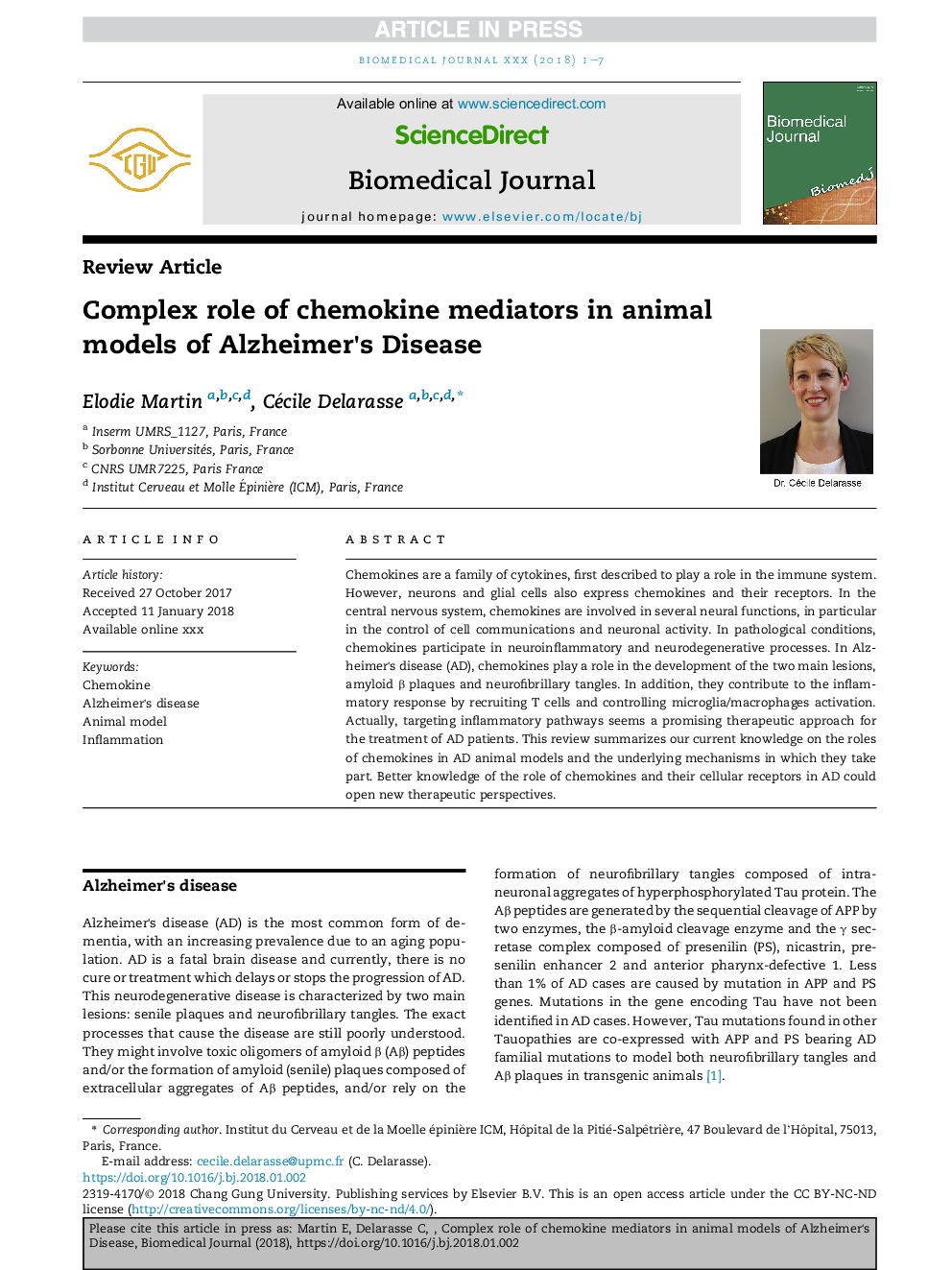| Article ID | Journal | Published Year | Pages | File Type |
|---|---|---|---|---|
| 8431917 | Biomedical Journal | 2018 | 7 Pages |
Abstract
Chemokines are a family of cytokines, first described to play a role in the immune system. However, neurons and glial cells also express chemokines and their receptors. In the central nervous system, chemokines are involved in several neural functions, in particular in the control of cell communications and neuronal activity. In pathological conditions, chemokines participate in neuroinflammatory and neurodegenerative processes. In Alzheimer's disease (AD), chemokines play a role in the development of the two main lesions, amyloid β plaques and neurofibrillary tangles. In addition, they contribute to the inflammatory response by recruiting T cells and controlling microglia/macrophages activation. Actually, targeting inflammatory pathways seems a promising therapeutic approach for the treatment of AD patients. This review summarizes our current knowledge on the roles of chemokines in AD animal models and the underlying mechanisms in which they take part. Better knowledge of the role of chemokines and their cellular receptors in AD could open new therapeutic perspectives.
Related Topics
Life Sciences
Biochemistry, Genetics and Molecular Biology
Cancer Research
Authors
Elodie Martin, Cécile Delarasse,
